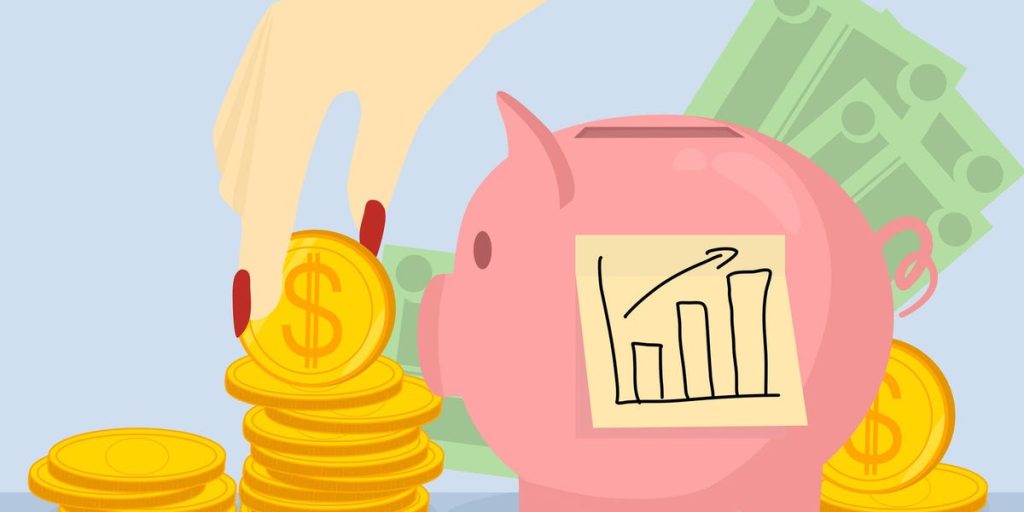Halfway to the weekend! A legendary piece of social-media history is returning: the Facebook Poke. Best of luck in all your Poke wars.
In today’s big story, we’re looking at why the economy has most consumers feeling like they are stuck in place.
But first, don’t move a muscle.
If this was forwarded to you, sign up here.
The big story
Economic freeze
For better or worse, we’re all stuck in our current economic situations.
A “trapped in place” economy is in full swing. Bad buying conditions coupled with everyday high prices means consumers can’t make any major life changes, writes Business Insider’s Emily Stewart.
The housing market is the most obvious casualty of this economic game of freeze tag. High prices, unrelenting mortgage rates, and low inventory have kept buyers and sellers mostly on the sidelines.
But it’s not the only area of the economy that’s stuck, Emily writes. The car-buying and job markets are also stalled.
As a result, many of us are treading water with no clear destination in sight. And for plenty of people used to gunning for the next big personal or professional move, that can be an uncomfortable position.
There is one thing that could melt the economic freeze.
High borrowing costs are one of the key things keeping the status quo firmly in place. It’s tough to take big swings when the cost of capital is so high.
It’s also one of the main reasons there’s a disconnect between how Americans feel about the economy versus what the numbers show, according to at least one group of economists.
The Federal Reserve isn’t expected to announce a rate cut this afternoon. But Fed Chair Jerome Powell’s comments after the Federal Open Market Committee’s announcement could provide clues for when relief will arrive. (These days, a good chunk of the market is betting it’ll come in June.)
But regardless of when rates are cut, consumers might still need to do a bit of soul searching to realize the past is the past. Plenty of financial experts — including one of the most successful hedge fund managers — predict high inflation will stick around for years.
And the idea the Fed will snap back to a zero-rate environment — partly what got us into this economic mess in the first place — seems like a pipedream. Mortgage rates under 3% are likely a relic of the past.
So, while consumers lament being stuck in place, they should also avoid getting stuck looking to the past.
3 things in markets
-
Pain in commercial real estate means opportunities for Wall Street. Investors like Blackstone and Steve Mnuchin are wading into the troubled CRE market, indicating the industry could be ready to rebound. The signs are there, from an increase in single-family rental dealmaking to prices on commercial mortgage-backed securities rising.
-
Is investing in sports fair or foul? JPMorgan just set up its own sports investment banking team as hype builds ahead of a crucial NFL meeting. Some have questioned whether sky-high team valuations could be entering bubble territory, but a study showed why sports investments remain a good deal for firms. The MLB and NFL outperformed stock, bonds, and private equity on a 20-plus-year basis, according to the authors.
-
You can thank bankers for the US’s “vibrant” economy. That’s according to Bank of America CEO Brian Moynihan, who shrugged off calls for regulation after NYCB’s recent wobble. Capitalism and the banking system have helped the US economy weather the pandemic, higher interest rates, two wars, trade debates, and shipping restrictions, he said.
3 things in tech
-
How Instagram got its mojo back. Just a few years ago, it felt like Instagram’s relevance was fading. But after beating out TikTok in growth last year, the app is on a comeback tour, thanks partially to the rise of Threads.
-
OpenAI is poised to release the next version of ChatGPT. It’s on course to put out GPT-5 sometime mid-year, two people familiar with the company told BI. “It’s really good, like materially better,” one CEO who recently saw the new version of the intelligent language tool said.
-
Welcome to the super-chip era. Nvidia CEO Jensen Huang ushered in a new phase for the AI sector when he unveiled the B200 chip on Monday. The semiconductor giant clearly demonstrated that it “continues to be 1-2 steps ahead of its competitors,” JPMorgan said.
3 things in business
-
A PIP spike at Amazon. An official HR document shows the number of Amazon staff put on performance-improvement plans spiked from spring 2022 through early 2023 — a time when the company was going through major layoffs. Some employees saw it as a “quiet firing” tactic.
-
Domo’s CEO stepped down in 2022 after being accused of sexual assault. Josh James stepped down as the data analytics company’s CEO after the alleged assault in late 2021, according to police reports and employees. He was never charged, and returned as CEO in 2023.
-
Microsoft adds more AI talent. The tech giant has hired Google DeepMind cofounder Mustafa Suleyman to lead a new group spearheading all its consumer AI initiatives, including its Copilot chatbot. It’s not the first time CEO Satya Nadella has tried to add a big name to his stable.
In other news
What’s happening today
-
The Federal Open Market Committee will make a decision on interest rates.
-
Reddit is expected to announce its final IPO pricing.
-
Astera Labs shares are expected to commence trading on NASDAQ.
The Insider Today team: Dan DeFrancesco, deputy editor and anchor, in New York. Hallam Bullock, editor, in London. Jordan Parker Erb, editor, in New York. George Glover, reporter, in London.
Read the full article here




